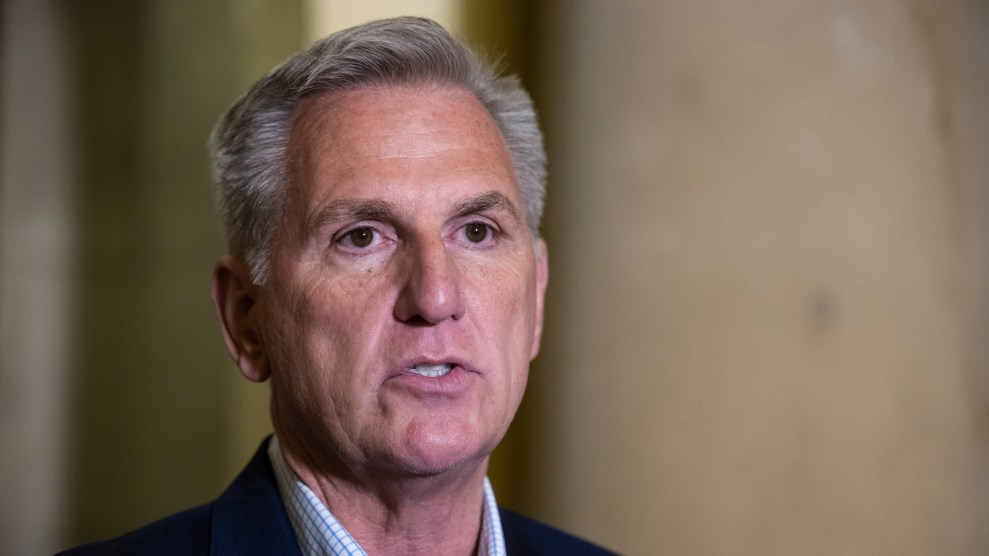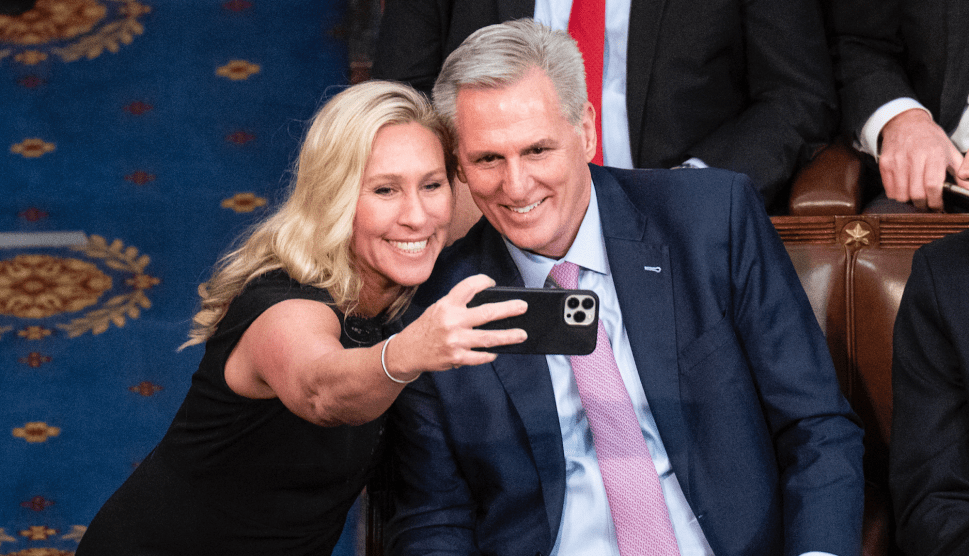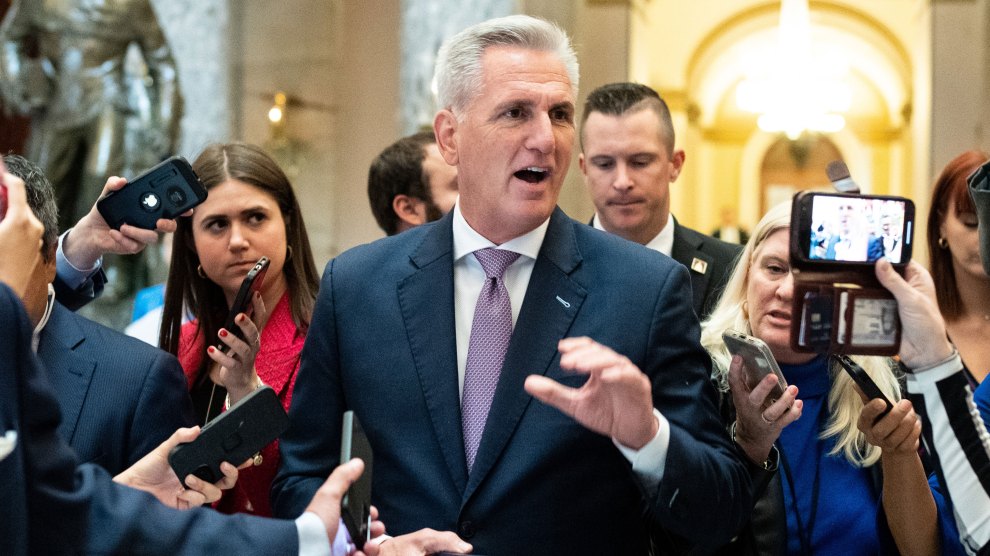
House Speaker Kevin McCarthy announces that he has reached a deal with President Biden to raise the debt ceiling at the U.S. Capitol May 27, 2023.Francis Chung/AP
President Joe Biden and House Speaker Kevin McCarthy said this weekend that they had reached a deal in principle to raise the debt ceiling, but as of Sunday afternoon, lawmakers were still waiting to see the text of the deal to be voted on. The agreement reportedly includes a debt ceiling extension through 2025—sparing the country a repeat of the financial brinkmanship of recent weeks—and contains some spending cuts. Those reportedly include cutting $10 billion from an $80-billion overhaul of the Internal Revenue Service approved last fall. The deal is expected to cut federal spending by about $650 billion over the next decade.
Despite the potentially dire consequences of the standoff—if the US defaults on its debt, experts say it could trigger severe economic declines and knock down the country’s credit rating—the $650 billion in cuts over ten years are relatively minor. For context, the US government has already spent $3.6 trillion so far this year.
The bad news is that, despite the deal between McCarthy and Biden, the drama is far from over: McCarthy’s grip on the GOP members of the House is notoriously weak. (Recall the 15 tries it took to get him elected, and the humiliating concessions he had to make to secure the job). The House is scheduled to vote on the deal Wednesday; it remains unclear if McCarthy will have the votes he needs, or face a revolt from the more extreme members of the GOP caucus, who had are demanding much steeper budget cuts.
According to early reports, the major points of the deal are:
- The debt ceiling won’t have to be dealt with again until 2025, after the next presidential election.
- Some federal spending would be capped, with spending next year holding roughly steady, and an increase of no more than 1 percent in 2025.
- Spending on defense, Social Security and Medicaid is excluded from any caps—which also prevents the reductions in savings from being particularly dramatic as those are some of the largest areas of federal spending.
- The IRS will have $10 billion cut from its major overhaul, despite that agency experts say the funds are necessary to get it functioning again.
- $60 billion in unspent COVID relief money will be clawed back.
- Work requirements will be imposed on recipients of federal food stamp and Temporary Assistance for Needy Families programs.
Treasury Secretary Janet Yellen has said that the US will run out of money on June 2, which makes it especially urgent for McCarthy to get the legislation approved in the week ahead.








